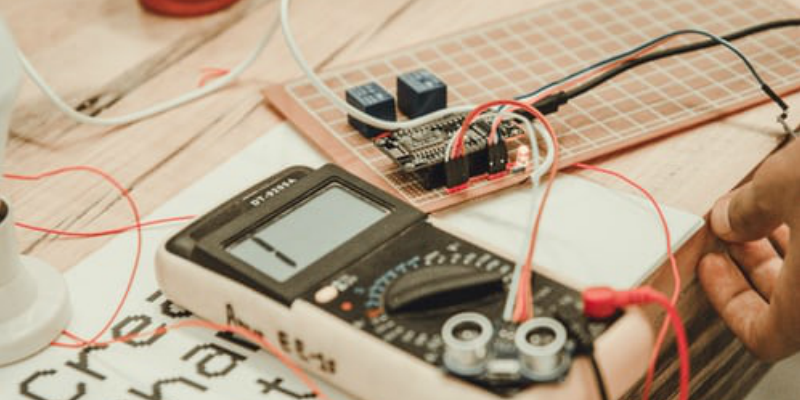Gadgets & Electronics
5 Home Electrical Safety Tips You Should Know

The National Fire Protection Association estimates that over 25% of approximately 81,000 electrical system fires happen annually.
Most homeowners are unaware of these electrical hazards or simply choose to ignore them. Sure, not all electrical accidents are avoidable, but it’s better to be safe than sorry. Here are electrical safety tips that should help keep trouble away from the vicinity of your home or office.
1) Avoid Overloading
Overloading means connecting too many appliances to just one outlet, and this could bring about dire consequences. Ideally, you should only connect one appliance at a time since each has a different power consumption level.
Pay attention to how you handle the major electrical appliances. They run the risk of losing their ability to function when connected to an extension cord rather than straight to the wall.
Read the manufacturer’s instructions and follow them to the letter, especially if you’re about to use an electrical device that’s new to you. The following signs should warn you about overloading:
- Dim lights: If the lighting at your house has become dimmer than usual, check your outlets. Lighten the load by transferring some appliances to a different switch around your home. Always act fast immediately when you notice the dimming lights.
- Noisy switches: It’s not normal for electricity outlets to buzz when you turn them on. Such noises are warning signs for you to take it easy on your outlets.
- A Warm feeling on your outlets: This is an unusual occurrence that should prompt you to take quick action. Keep track of your appliances and electric outlets by touching them lightly. A warm feeling is a sign of overloading.
- Burning smells – Check on your outlets and switches to make sure they don’t produce burning odors.
- Scorched outlets – Call a certified electrician to the switch power cord immediately when you notice this sign. Work on keeping your outlets lighter once the electrician replaces the burnt ones.
2) Keep Your Appliances Unplugged When Not In Use
Electrical surges are very common, especially if the wiring in your home is not done to perfection. Unplugging your devices is a prevention method that prevents unforeseen electrical surges and ridiculously high electricity bills.
In case you forget to unplug your appliances for some reason, you could turn off the main switch when leaving the house or going to bed. It’s also best to monitor how much power your appliances use to avoid sudden outages and other dangerous disruptions.
3) Find a Proper Position For Your Cords
One of the most common electricity mistakes you could ever make is to run your power cords under your rugs and carpets. This makes them invisible to members of your household who may end up tripping over them.
Call a professional to install the cords conveniently away from an open path in your house. Avoid relying heavily on power extensions as they are bound to cause multiple electric accidents.
There are safer ways and positions you could install power outlets. This way, you wouldn’t have to put a strain on your devices’ plugs at home.
4) Avoid Using Extension Cords That Are Damaged
Shop around for genuine extension cords since there are plenty of counterfeit products on the market these days. Fakes could cost you dearly since they fail to abide by the standard rules as the quality ones do. You’ll know you need a new extension cord when you notice these signs of damage.
When It Becomes Too Loose
If your cord lacks the firm security and tightness it had when you first purchased it, this is a sure sign that you need to get a new one. A loose electric cord is extremely dangerous and may damage your appliances in the long run.
An Extremely Short Cord
This causes you to think along the lines of overloading. As mentioned earlier, overloading has adverse effects on both the appliances as well as the outlet itself.
The Cord Grows Warmer to Touch
A quality extension cord shouldn’t be easily susceptible to an appliance’s harsh effects with a higher power outage. A warm feeling on your electric cord means you should get a better one ASAP.
Damages on the Exterior
This is an obvious sign that you should never miss your attention. The outward signs of frays, cuts, burns, or even cracks means you shouldn’t go any further in their usage.
5) Keep Tools And Electrical Appliances Far Away From Water
Water is among the leading causes of fatal accidents when it comes to contact with electricity. During the installation of outlets, ensure that it’s nowhere near a water source such as a faucet.
Worse still, placing a drink of water somewhere close to electrical appliances is not advisable. When buying outlets, get interrupters that can detect a short circuit’s likelihood and prevent it from happening.
If you’re buying them for the first time, get professional advice as it may get tricky to identify the most genuine products on the market.
Final Thoughts
The safety of your household comes first with regards to electricity. Besides learning the basics of electric appliances, always have an electrician repair any device that often trips a breaker or blows a fuse.
-

 Press Release6 days ago
Press Release6 days agoGlobal Compound Feeds and Additives Industry Report: Market Expansion and Competitive Insights to 2035
-

 Technology6 days ago
Technology6 days agoWhat to Know Before Switching Cell Phone Network Services in 2025
-

 Press Release4 days ago
Press Release4 days agoCrypto WINNAZ Launches First On-Chain Yield Engine for Meme Coins, Enabling 20x–300x Returns
-

 Press Release2 days ago
Press Release2 days agoBellarium ($BEL) Price Prediction: Could It Hit $5 by 2026?
-

 Press Release2 days ago
Press Release2 days agoWhy Alaxio (ALX) Is a Top Pick for Smart Crypto Investors
-

 Business23 hours ago
Business23 hours agoHow Managed IT Solutions Help Small Teams Compete at Enterprise Scale


































